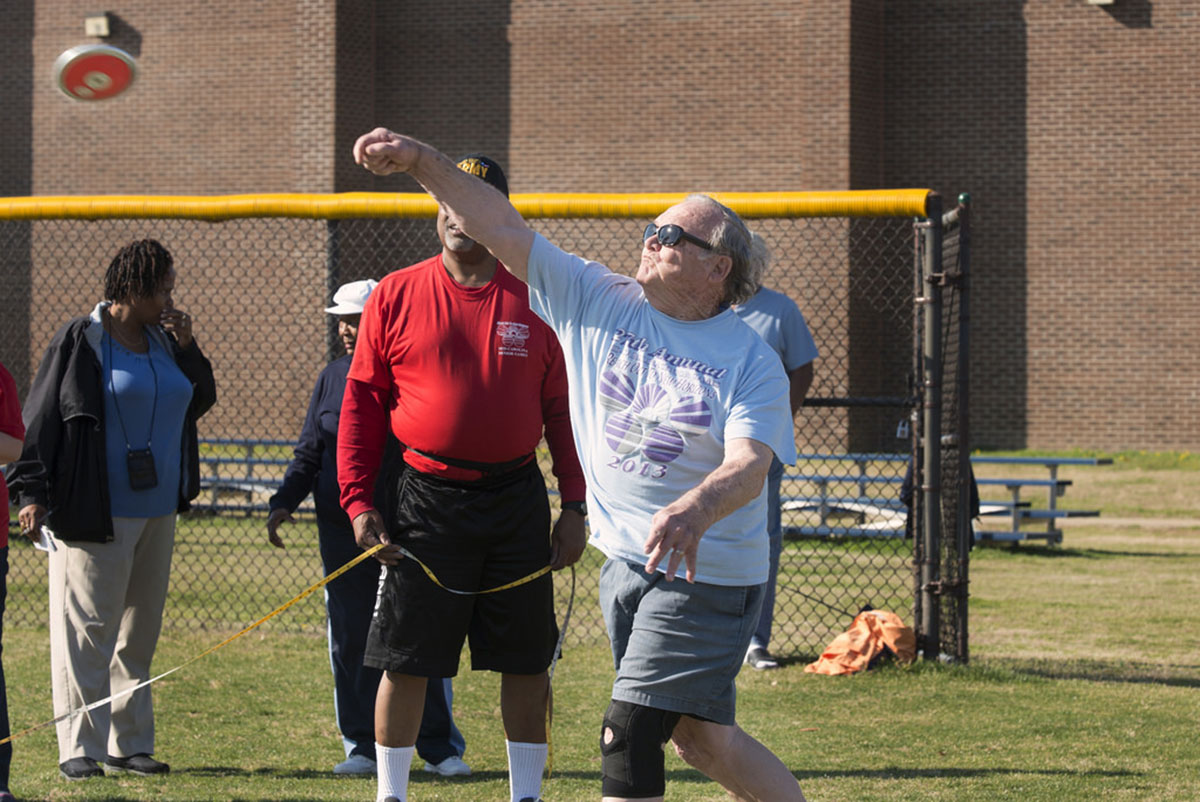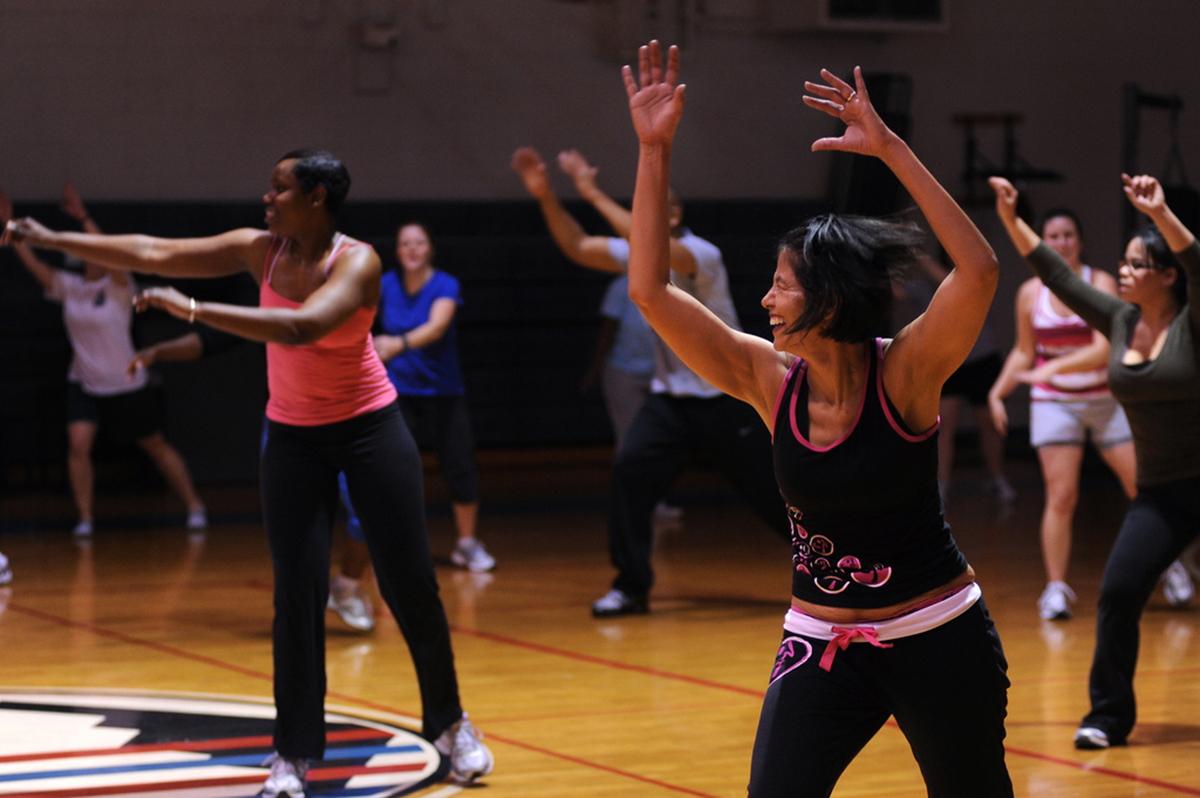What happens as we get older?
Naturally as we age our bodies start to change and physical aspects start to decline and this is completely normal. But there are ways to prevent the ageing process from happening that quickly but its important to understand what happens as you age.

From the age of 25 your VO2 max starts to decline about 1% per year - this is the maximum amount of oxygen your body can carry around per minute. This means that your endurance/stamina starts to decline naturally each year if you don't exercise at all. This is because the heart and lungs start to become less efficient and your body isn't as good at delivering and utilising oxygen.
Muscle mass and strength is at its best at around the age of 30 surprisingly enough and from that point on your muscles start to decline and you lose up to 1-2% a year from the age of 40 onwards and this can be quite substantial. If you are losing muscle tissue then that affects your strength and stability in every day live, for example, losing muscles inhibits your ability to carry your shopping, or bend down and tie your shoe laces so its important you try to maintain them.
Also your metabolism begins to slow down which means you burn less calories per day, therefore if you fail to change your diet and continue eating the same amount of calories you will gain weight. Because of the lower need for calories if you do change the diet then you will start to lose weight and with a loss of muscle and bone tissue as you age your weight will decline.
Cardio exercise to prevent ageing
There is a debate about what type of exercise is best to prevent ageing and both cardio and strength training have their benefits.
See Also: 4 Ways to Kickstart Your Cardio Routine
Some good ways to keep fit using cardio are:
- Try to include gentle walking as part of your daily routine. Walk for at least 30 minutes per day at a gentle pace to keep your heart rate elevated and delivering oxygen around the body
- Make some lifestyle changes such as doing the gardening on a more regular basis, mowing the lawn for example actually burns lots of calories and keeps the heart rate elevated for a long period without realising it.
- Take up a sporting activity or class like playing squash with a friend once a week or a fitness class like aerobics to keep working aerobically.
- Another lifestyle change could be if you get the bus or train to work try getting off a stop early and walking the remainder of the distance or if you work in a tower block then start off walking at least one floor and work up to walking all the way.
Resistance Training To Prevent Ageing
Most people over 50 associate exercise with light cardio or aerobic based exercise like cycling or walking but there is a lot of evidence to prove that there are just as many benefits from resistance or lifting weights in terms of decreasing the signs of ageing.

- Start doing some resistance based exercises 3 times a week using just your body weight such as squats, lunges and push ups. These exercises utilise the body weight to put stress on the muscles to repair and restore muscle loss
- If you are the member of a gym get in and start lifting weights. You shouldn't avoid lifting just because you are over 50 but actually it can help show real benefits. Just make sure you give a little longer to recover between workouts
- Exercise the body as a whole so when doing a weights session do movements that use more than one body part or join instead of single isolation moves such as a bicep curl, do a shoulder press instead.
- Do a weight or resistance workout 3 times a week for at least 30 minutes to see any gains
Why exercise?
Many clients I see over the age of 50 want to reverse the signs of ageing but this isn't possible.
You cant stop it obviously but maintaining an active lifestyle is essential to stop the declines mentioned at the start of the article.
Doing cardio work is proven to slow the signs of ageing because elevating your heart rate and keeping it elevated will strengthen the heart tissue and also helps keep delivery of oxygen and using that oxygen running effectively. It also helps to maintain elasticity in the arteries which will lower the risk of heart disease and other similar complications as you get older.
Resistance training is essential to maintain muscle and bone mass. Doing weight bearing exercise which resistance is (as well as cardio) puts stress through the bone tissue and makes it stronger and maintains that strength into your 50's. Lifting weights causes micro tears in the muscle and when you recover this tissue is repaired making it stronger and also increasing the amount of muscle mass you have. Slowing down the loss to about 0.5% or stopping it completely.
See Also: Study: Senior Citizens Benefit From 'High-Intensity Training'
Combining the points above with good nutrition will also help to decrease the risk of heart diseases and other complications that can occur as a result of age. If you are just starting to exercise then remember you need to start slowly and the worst thing you can do is to go to hard too soon because this will lead to injury and make the signs worse or stop you exercising altogether. But the best way to prevent the signs of ageing isn't using face creams or putting crazy foods on your eyes and skin but actually exercising and letting the body improve itself to maintain a great level of fitness to help with daily life.
- Photo courtesy of Fort Bragg by Flickr: www.flickr.com/photos/fortbraggnc/13603723374
- Photo courtesy of Kenny Holston by Flickr: www.flickr.com/photos/kennyholston/5350546208
- www.webmd.com
- www.betterhealth.vic.gov.au


Your thoughts on this